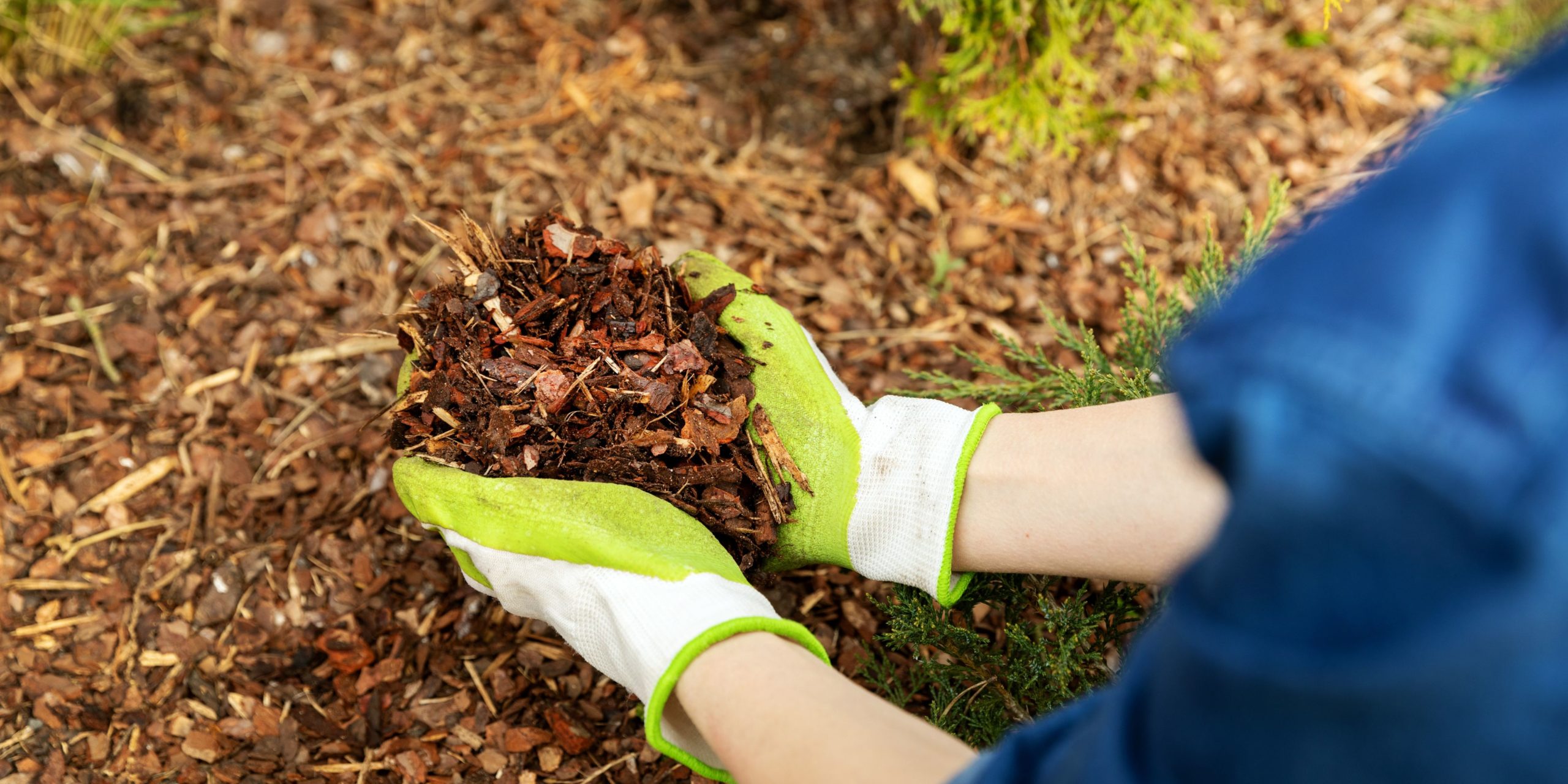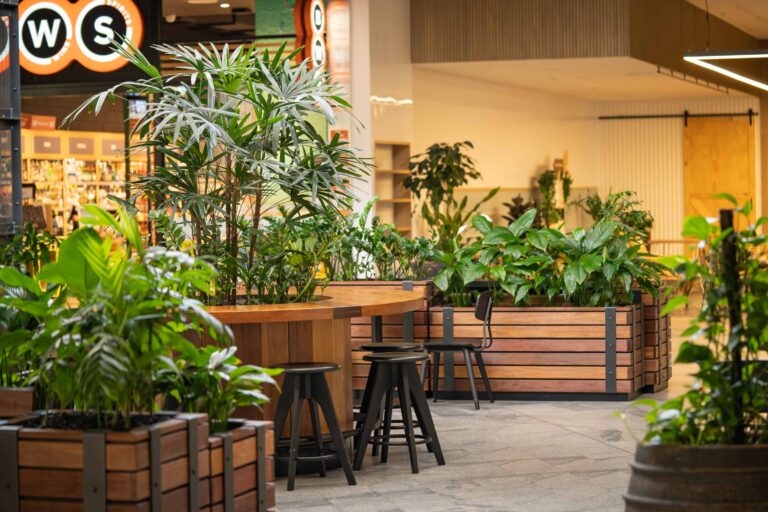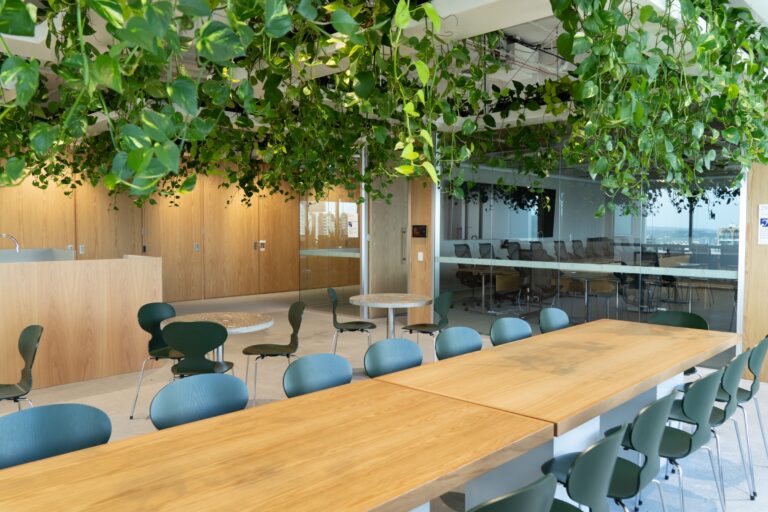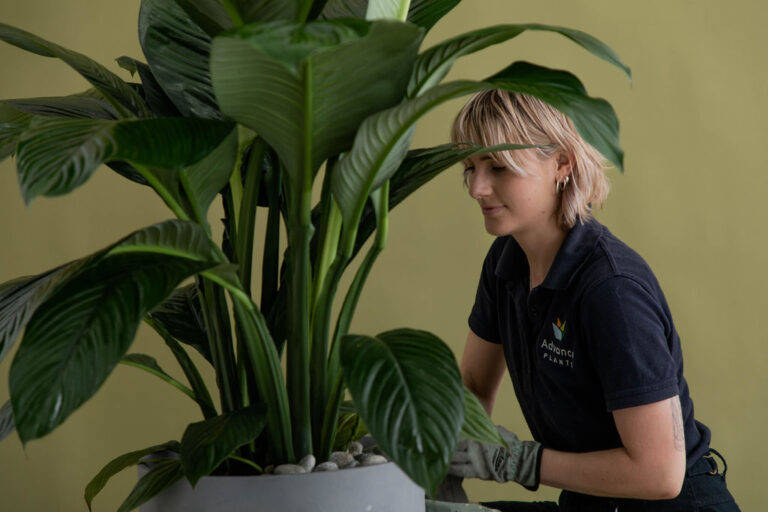Are you curious about the different types of mulch available to keep your grounds looking beautiful? From grass clippings to recycled tire rubber, mulch comes in many forms of organic and inorganic matter. Yet their primary purpose can vary depending on your environment and preferences.
Finding which mulch works best for your property can be confusing, as you navigate the sea of contradictory online gardening opinions. Our landscape maintenance team has been mulching South East Queensland businesses for many decades. From Westfield Chermside to the Logan Hyperdome, Allisee Residential Apartments to Badon Village Royal Pines Resort; our team of landscapers know mulch.
In fact, by winter’s end they probably wish they knew it a little less, as they’ve been topping up client garden beds for months. Because every good landscape maintenance technician knows, if done right, winter mulching can help reduce the summer workload. Add to this an increase in your garden’s longevity and it’s not hard to see why the effort is worth the reward.
But first, what is mulch and why does it matter?
Put simply, mulch is a layer of material laid over the surface of soil. Landscaping gardeners mulch garden beds for four main reasons:
-
Weed control
-
To enrich the soil with nutrients
-
To keep moisture in and;
-
Because it looks great!
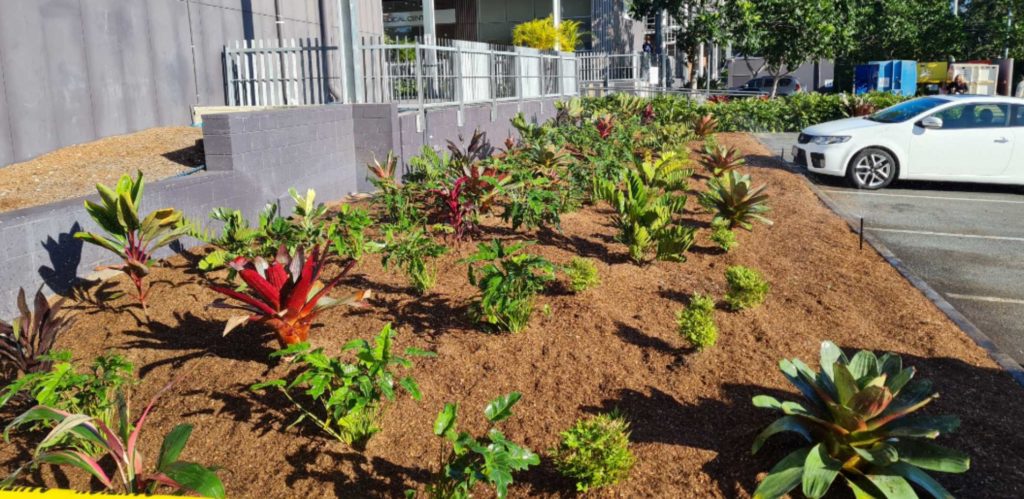
You will find many more reasons why mulching is important (such as for preventing soil erosion and controlling pests) but these are the main ones.
The 12 most common types of mulch
So what are the main different types of mulch and how do they differ? If you Google “types of mulch” you’ll find 25+ various compounds of organic and inorganic mulch. However, most can be boiled down to these twelve most common types of mulch (illustrated below):
-
Straw
-
Wood chips
-
Leaves
-
Grass clippings
-
Bark
-
Compost
-
Sawdust
-
Gravel
-
Stones
-
Landscape fabric
-
Shredded tires; and
-
Black plastic.
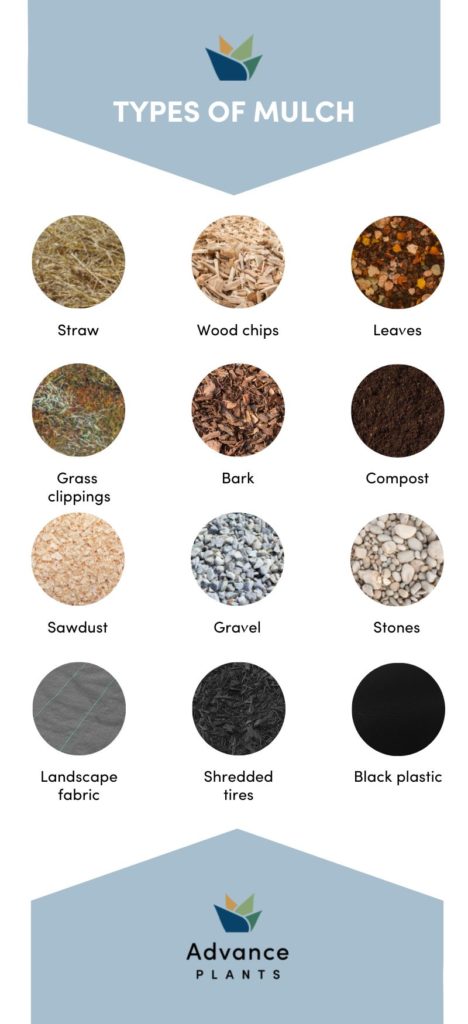
While all mulch provides weed control and visual appeal; organic mulch breaks down over time, infusing nutrients into the soil, while inorganic mulch doesn’t.
Inorganic mulch is therefore considered less expensive as it doesn’t need to be topped up as frequently. However, the soil quality beneath it will degrade at a faster rate than organic mulch’s soil, due to a lack of nutrients.
So, which mulch is the best for my property?
There are several environmental factors that will determine which type of mulch our landscape gardeners will apply on your garden beds. These include:
-
Wind
-
High traffic areas
-
Health and safety concerns (e.g., children choking, slips and falls); and
-
The types of plants it’s covering.
And of course your visual preference will weigh into the decision.
As a company principle, it is always our preference to only do things that will benefit your landscape, and ongoing costs, in the long-term. This includes our use of a super fine green waste forest mulch that is soil enriching, environmentally friendly and easy to spread.
Not only does it look great, but it keeps your garden bed healthier in the long term, is safe around young children and good for holding to the ground. So it’s suited for high traffic areas and less likely to clog drains.
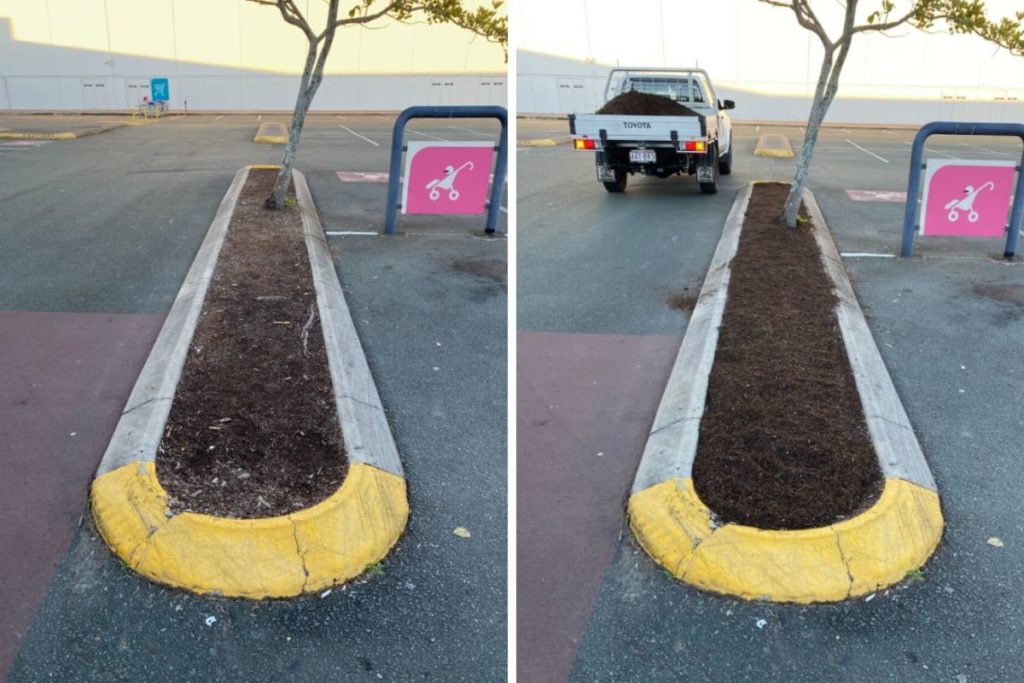
Our top 3 Mulching best practice tips
-
Mulch should be spread 100mm thick, so no light will through so the weeds can’t grow; and
-
Mulch should not be places within 50mm of the stem or trunk of all plants to keep moisture away and prevent disease.
Do you have any other mulching tipcs. Let us know! We’re always looking for ways to improve our practice.
How Advance Plants can help you with landscape maintenance:
From landscape design and consultation to tree maintenance, irrigation, water features and sports turf management; Advance Plants is your all-in-one exterior landscape solution.
Request our Capability Statement or book a free 15-minute phone consultation with one designers to get started today.
